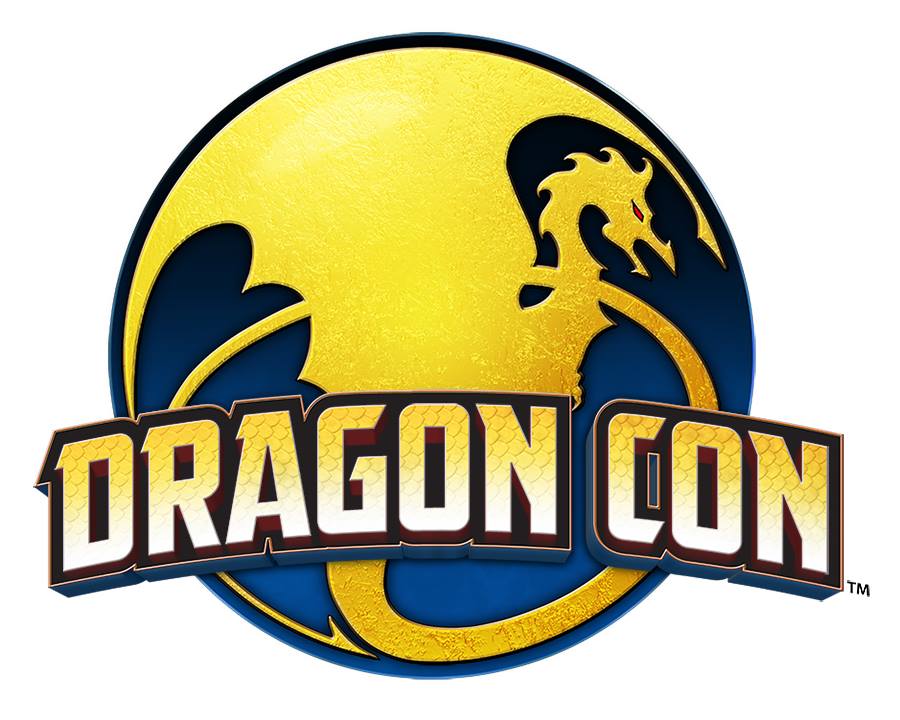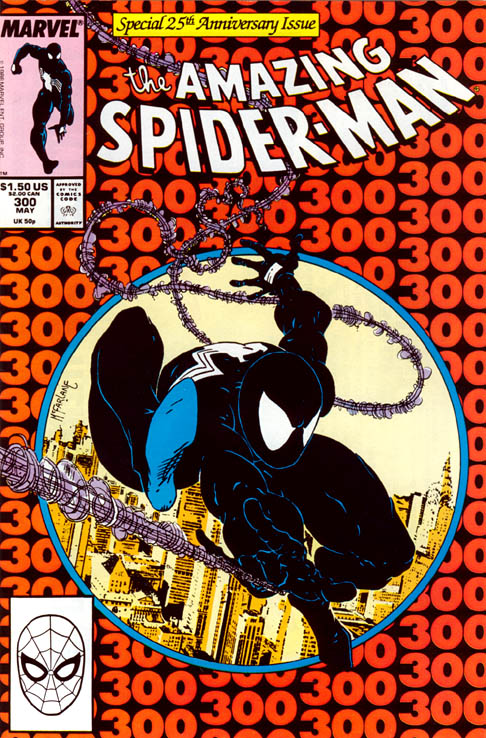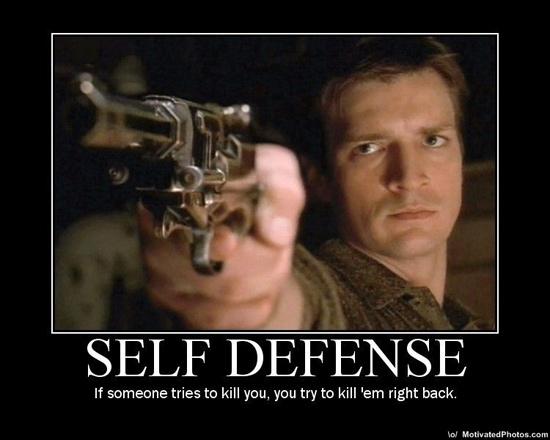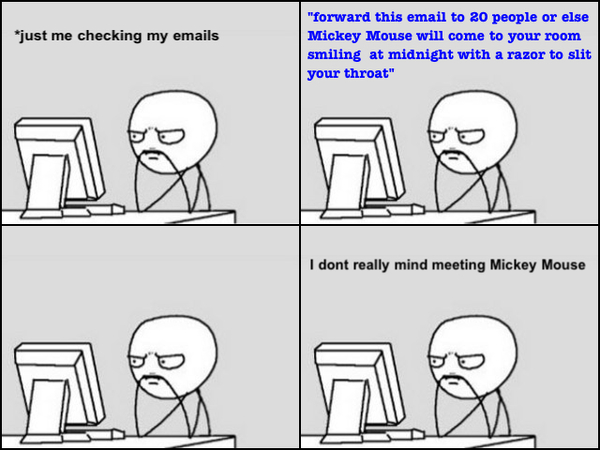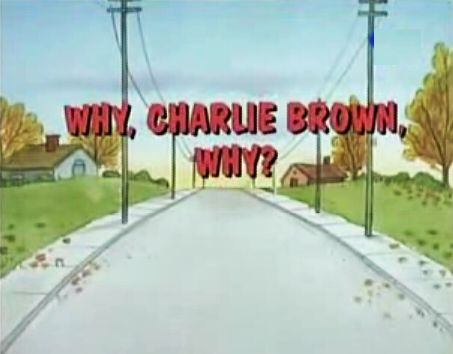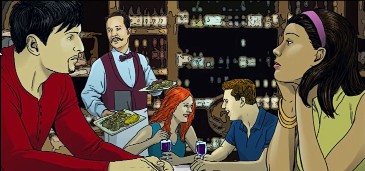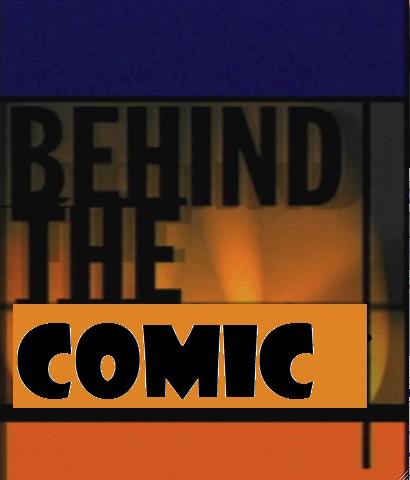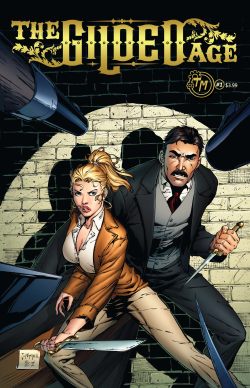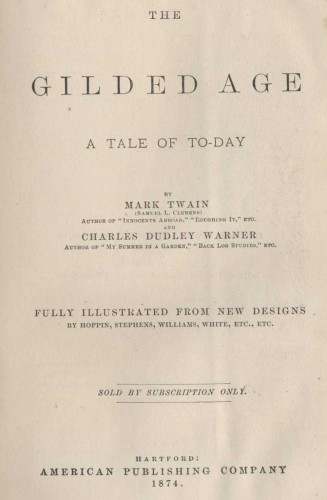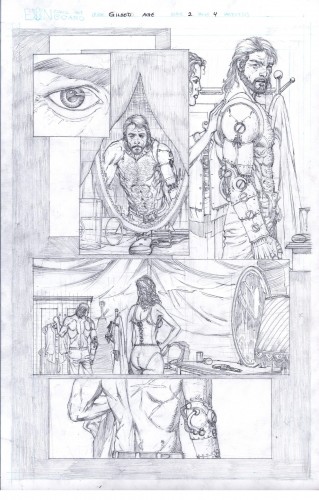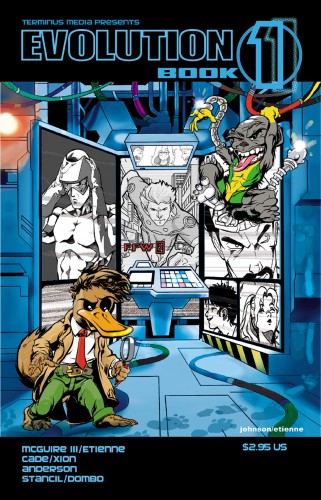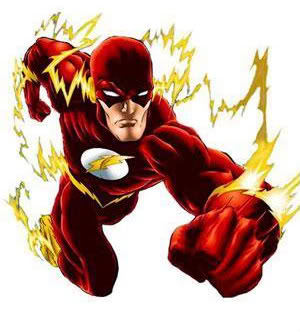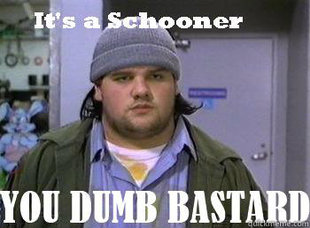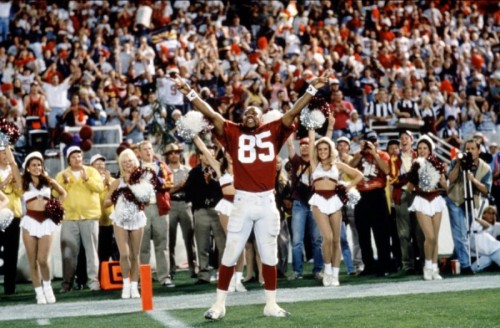With the casting news for Spider-man: Homecoming I feel like there is something I should say. I have a confession to make. Well, maybe not a confession, but more like a moment of truth. Spider-Man is my favorite comic book character.
That’s not the confession.
This revelation does not make me unique or anything. Plenty of people love Spider-Man (as evidenced by the sheer amount of money the movies alone have made). The fact that any kid might have something Spider-Man themed in his closet. Or that dozens of figures of the guy are released every year.
No, the confession is that I have not read a Spider-Man comic in quite some time (7+ years).
Now if Spider-Man is my favorite character why would I forsake him in the very media that I profess to love beyond probably even my wife’s understanding?
One name: Mary Jane Watson Parker.
Many of you will know the name Mary Jane Watson from the Sam Rami movies of the 00s as she was played by Kirsten Dunst. As you can tell from the movies, she is an important cog in Peter Parker’s life.
I personally think she’s the true love of his life, not Gwen Stacy, but that’s mostly because I don’t know Gwen. She had been dead for a decade before I picked up my first issue of Amazing Spider-Man. I only have the occasional flashback to let me know who she was.
Though, one of my favorite stories came from a “Gwen” moment. Spider-Man Blue by Jeph Loeb and Tim Sale tell a story where on Valentine’s Day Peter is feeling reflective about how much he misses Gwen, and proceeds to talk into a tape recorder about the two of them falling in love. He talks to her about how her death messed him up for a long time, but through Mary Jane he learned to love again. And then this happens…
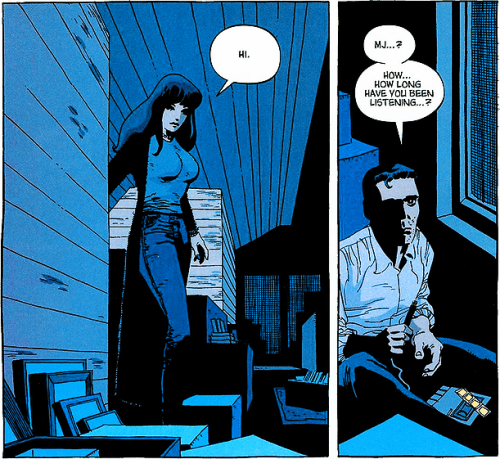
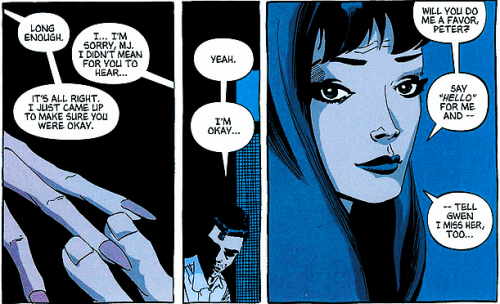
And if you were to pick up a Spider-Man comic from around 1987/1988 until about 2008 you would have probably seen Mrs. Parker in the comics. As Peter’s wife she’s been with him through think and thin.
However, if you picked up a Spider-Man comic today you might notice that Peter is no longer married.
More on that in a second…
Spider-Man appeared in Amazing Fantasy #15 in 1962. By the time I started reading the comic was approximately 25 years old. During that entire time Spider-Man was a single guy. Yeah, there were girlfriends: Betty Brant, Felicia Hardy, Gwen Stacy, and Mary Jane, but he was a single guy. For 25 years those writers got to weave stories featuring a single Spidey. But that changed in 1987 (Amazing Spider-Man Annual #21) when the two of them tied the knot.
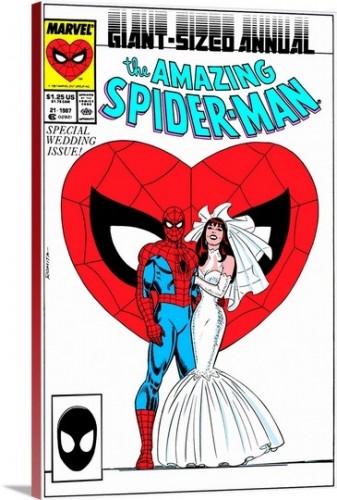
I was 11 at the time this happened. I think I had read about 6 issues of Spider-Man before he got married. Spider-Man getting married did not change how I saw the character. It did not make him my “Dad” all of a sudden. It didn’t make him the “winner” of life because he married this gorgeous model (these were some of the reasons for getting rid of the marriage, but more on that later).
Growing up I never saw myself as a good-looking kid. I was taller than all the other kids, maybe a little clumsy, and shy around girls. There were plenty of times I would think about the fact that I would never find a girlfriend.
Comics are a great escape from life. When you get down on yourself, get depressed about something that’s happened to you, they are there waiting for you, month in and month out. Ready to take on the worst of the worst bad guys.
So how did it make me feel when Spidey got married?
It actually made me feel like, maybe, just maybe, there was a girl out there for me. That even if I felt awkward and ugly that it wouldn’t matter. I’d find that person who I was meant to be with. Maybe that girl next door might take a shine to me.
It’s probably silly to think that way. These weren’t real people. And yet… because Mary Jane and Peter weren’t just two people who started dating and decided to get married. These were two friends from way back. They’d suffered through tragedy on both sides. And where he had never confided in Gwen about his alter-ego, Mary Jane knew (she figured it out – girl is smart). Because she was his best friend. Moreso than Harry Osborn (when he wasn’t the Green Goblin) or Flash Thompson (in the later years), MJ was the one that he could always turn to.
So, no, it wasn’t a bad thing that this happened. Not for me at least.
And so it went that from 1987 to early in 2008 Spider-man was a married character.
But apparently this was a problem for the people in charge. Apparently having Spider-Man married meant that they couldn’t have Peter date the Black Cat or whomever they wanted him to. Apparently being married… wait for it…
Made Spider-Man OLD.
They felt like the truest form of the character was that of a single guy. That him finding love with his best friend meant he’d won and was no longer the loveable loser everyone thought he was.
They (the writers) felt like they were hamstrung on stories because he was married.
Counselor, I present Matt Fraction’s take:
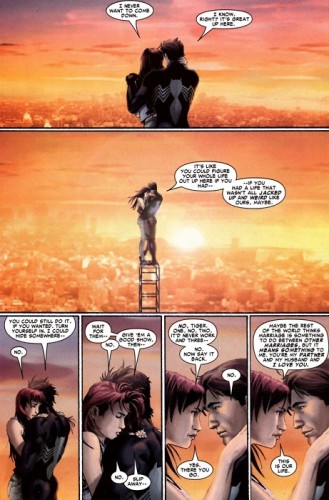
During J. Michael Straczynski’s run on the book I told my wife that I could have read 22 pages of just the two of them talking. But more than that, I think JMS understood how to approach the relationship. Mary Jane being married to Spidey is the life many women (and some men) live when their spouse is a police officer (or firefighter or in the military). There is always that chance that they may not come home that night. I don’t think that means they love them less, though. I think that means they try to fight for every moment they get.
But the powers that be didn’t like the marriage. And I’d heard the same argument about Superman and Lois Lane. And I think it is complete crap. It’s lazy writing to say you can’t come up with a story for the character because his connection to another person is marriage. Because, let’s face it, Peter Parker, single, was not going to be running around banging every chick that he meets. He’s not that character and never will be. So if he had a girlfriend he’s not going to cheat. So what the heck is the real difference there?
There isn’t one.
One other point about this that I’m not sure people really thought about. 25 years as a bachelor and 21 years married. That’s effectively the same amount of time, and one could argue that there were far more actual comics with him married than single (more titles in the 90s, etc.). But it wasn’t like this marriage had been around for only a couple of years. For all intents and purposes Spidey was a married man (or at least a committed man).
But the decision had been made. They came up with a story line that had Aunt May on the brink of death (yes, that old chestnut of a story – never used that one before!), and the only way to save her was to make a DEAL WITH THE DEVIL.
And the Devil wanted their (Peter and Mark Jane’s love).
Wait, that’s not right. He wanted their marriage.
Let’s toss aside the fact that Spidey lives in a Universe where superheroes come back to life on an almost daily basis. Let’s ignore the fact that there are mutants who have the ability to HEAL other people, and even if he doesn’t specifically know those people, he knows people who know those people (confused yet?). And let’s even forget about the fact that Aunt May is OLD and has lived the good life, and would NEVER want her nephew to make a DEAL WITH THE DEVIL.
The fundamental problem with this is that Peter and Mary Jane would never make such a deal. They just wouldn’t. Peter would find another way. He’d triumph through some angle we hadn’t thought of.
But no, he made the deal and the marriage was undone.
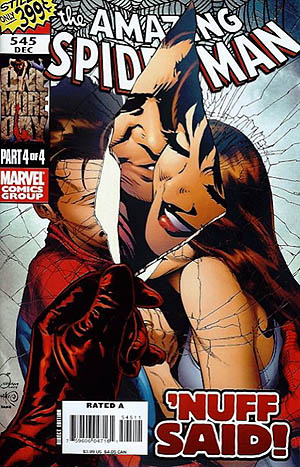
The last issue of Amazing Spider-Man I own.
And I haven’t picked up an issue of Spider-Man since.
The place I now get to read about my favorite character is in the pages of the Avengers when he happens to be on the team, or when he makes a guest appearance in a comic I read.
Now we’re 6 years into my “strike” on reading the character. They just finished a 30+ issue story where Doc Ock swapped bodies with Peter and then tried to use the powers for good. There’s a new story (that could have been told with him being married I’m sure), and one I would like to read.
But I can’t. Stupid principles.
***
John McGuire
John McGuire is the author of the supernatural thriller The Dark That Follows, the steampunk comic The Gilded Age, and the novella There’s Something About Mac through the Amazon Kindle Worlds program.
His second novel, Hollow Empire, is now complete. The first episode is now FREE!
He also has a short story in the Beyond the Gate anthology, which is free on most platforms!
And has two shorts in the Machina Obscurum – A Collection of Small Shadows anthology! Check it out!
This post originally appeared on tesseraguild.com.
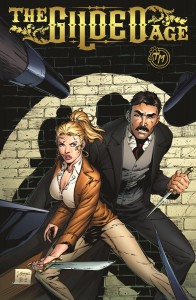 I’m currently running a promotion where the first issue of my Steampunk Comic: The Gilded Age is free to download.
I’m currently running a promotion where the first issue of my Steampunk Comic: The Gilded Age is free to download.
